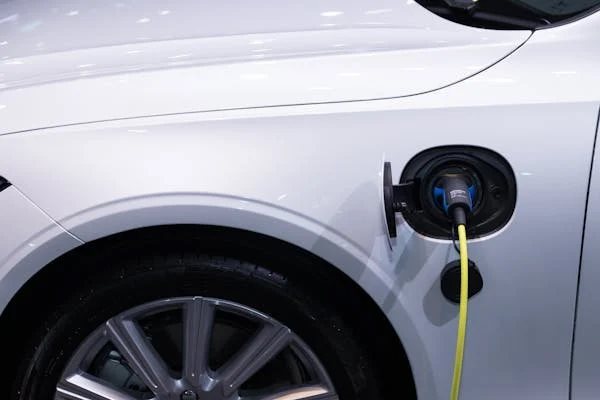South Africa’s New Energy Vehicle Market: Trends, Challenges, and Insurance Implications
South Africa is experiencing a surge in the adoption of new-energy vehicles (NEVs), including hybrids and electric vehicles (EVs), as motorists seek to reduce fuel costs and lower their carbon footprint.
According to Keletso Mpisane, head of Blink by MiWay, “South Africa is seeing an uptick in new-energy vehicles (NEV) like hybrids or electric vehicles – incentivised by the idea of saying goodbye to petrol stations for good.” Globally, governments are promoting the adoption of electric vehicles through tax breaks and legislation, making them more accessible. For instance, over one in three new cars registered in China in 2023 were electric, while in Europe, the figure stands at one in five cars.

More than 15 manufacturers, including BMW, Volvo, BYD, and Haval, now offer NEVs in South Africa, with the number expected to grow. The automotive council reports that 7,693 more NEVs were sold in 2023 compared to the previous year, representing a 65% year-on-year increase. “While these accounted for less than 2% of total new car sales last year, these figures show that consumer interest is on the rise,” Mpisane notes.
Full Electric Vehicles
Electric vehicles (EVs) or battery electric vehicles (BEVs) are powered by at least one electric motor. They offer several benefits, including being smog-free and having fewer moving parts compared to traditional internal combustion engines, which reduces servicing and maintenance costs. However, EV drivers often face “range anxiety” – concerns about running out of charge on long trips. Mpisane advises that having an insurer with roadside assistance for EVs can mitigate this worry.
The higher-end EV market offers cars with greater range, but these vehicles attract higher premiums due to their increased value. Additionally, EVs require specialist parts, which can be more expensive to source. Longer service and maintenance plans offered by EV manufacturers can help offset this downside.
Hybrid Cars
For those concerned about range anxiety, hybrid vehicles offer an alternative. Hybrids combine an internal combustion engine with one or more electric motors. Traditional hybrids use regenerative braking to charge the battery and are the most common NEVs in South Africa. Plug-in hybrid vehicles (PHEVs) can run further and faster on electric power alone but require charging.
Mpisane notes that traditional hybrids are ideal for city commuters looking to reduce fuel costs, while PHEVs suit those with access to charging stations at home. Hybrids are fuel-efficient and offer peace of mind for long trips. However, their dual systems can be complex, leading to higher maintenance costs.
Insuring a hybrid car may be more affordable than covering EVs, but it will still cost more than insuring traditional internal combustion engine cars. Hybrid owners can expect savings in areas like brake replacements due to regenerative braking.
In conclusion, Mpisane reminds that “as NEV technology improves, and carbon levies impact the market, these green alternatives will pay off for owners and the environment in the long run.”


